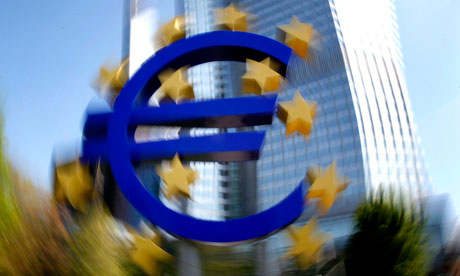The European Central Bank isn’t buying Greek bonds until there are details on debt measures-Greek bonds might become part of the ECB’s balance sheet in different ways
By Silvia Amaro, CNBC
The European Central Bank does not intend to buy Greek bonds as part of its quantitative easing program anytime soon. But Greek bonds might become part of its balance sheet in different ways.
“As we have made clear in the past, specificity on debt measures is a necessary condition for the Governing Council of the ECB to examine purchases of Greek government bonds under the PSPP (Public Sector Purchase Program),” a person familiar with the situation told CNBC on condition of anonymity due to the sensitivity of the issue.
He added clarity might not come before Greece concludes its bailout program in 2018, which as a result delays the central bank’s decision.
Greek officials, the International Monetary Fund and European creditors are set to discuss ways to make Greece’s debt more sustainable at a meeting on Thursday. However, talks have seen very little developments since the country started its 86 billion euro ($96.4 billion) program in 2015. Mostly, because there’s great opposition to granting any debt relief to Greece in Germany, political analysts say.
ECB President Mario Draghi said last month that he regretted that no deal on debt measures had been reached. He added: “First, let’s have an agreement, a full agreement, and let’s find measures that will make the debt sustainable through time.”
Greek public debt is set to reach 178.8 percent of GDP this year, according to the European Commission.
At the moment, the ECB’s quantitative easing (QE) program runs until the end of this year. If this happens, Greek bonds might end up never featuring in the ECB’s bond buying program.
Greek lawmakers have stated several times that being part of QE would help Greece return to the markets after its bailout program and to see an improvement in its economic performance by making investors more confident about opportunities in Greece.
“It’s too early to say,” the ECB official said regarding whether the ECB will purchase Greek bonds as part of QE.
First, the program might be extended. Societe Generale said Monday that QE might be extended well into 2019. As a result, talks on Greek debt could be over before the end of QE allowing the central bank to assess their purchase.
Second, the ECB might decide to reinvest some government bonds that mature in the meantime and buy Greek bonds with the money made.
“We decided to reinvest the principal payments on the securities purchased under the APP (asset purchase program) as they mature, for as long as necessary. This will contribute both to favourable liquidity conditions and to an appropriate monetary policy stance. The technical details will be communicated in due time,” President Draghi said in December 2015.
Given that the bank has decided to reinvest some of the cash from maturing bonds, this means that the stimulus won’t be cut overnight and could run until the end of 2020, Klaas Knot, the Dutch central bank governor explained last October.









